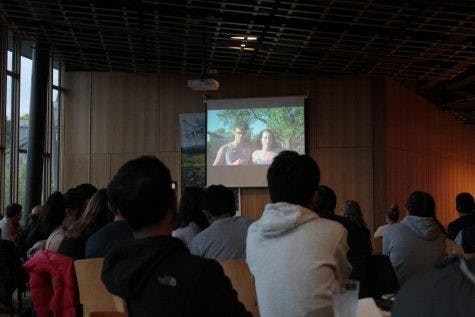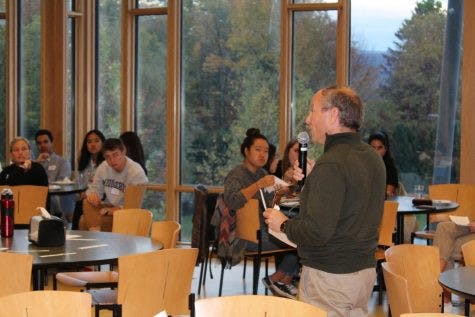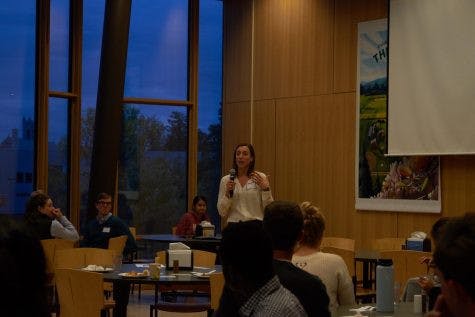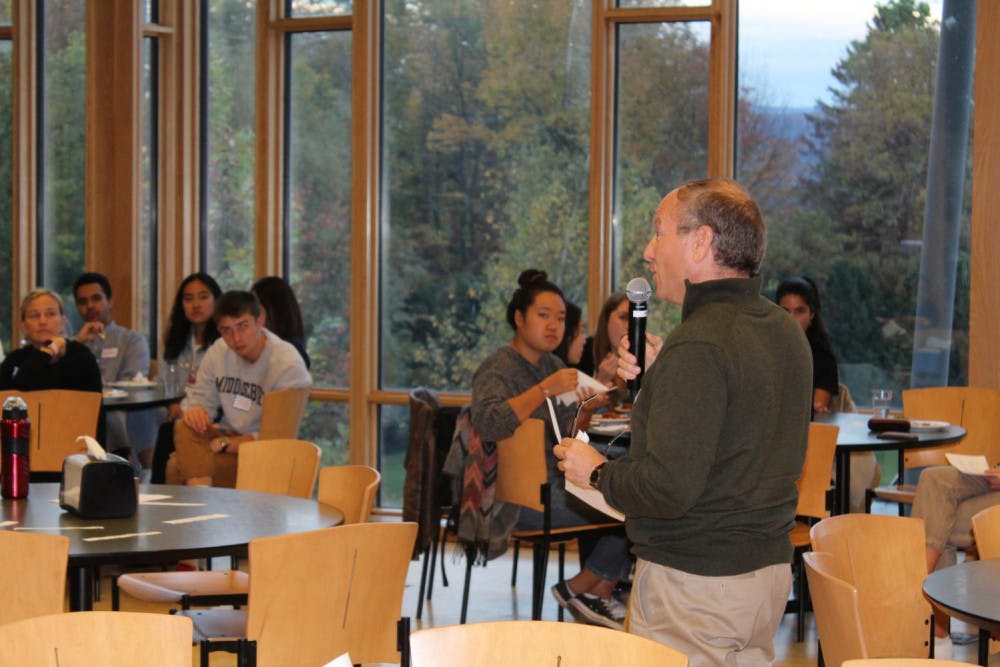Economics is an increasingly popular major at Middlebury, and the department’s growing enrollment has placed a strain on its resources. However, a perception remains on campus that the majority of economics majors fit within a certain demographic — often male, certainly white.
This impression — somewhat based in fact — can impact which students feel comfortable taking economics courses. Wider national trends show that women and minorities are underrepresented in the economics profession.
Some students are trying to change that breakdown.
Together with the Economics Department, the largest department at Middlebury by number of majors, Lizzie Friesen ’20 hopes to start a conversation about the lack of diversity in economics and to address stereotypes about the field. The department held a dinner banquet in Atwater Dining Hall on Monday, Sept. 30, where Friesen — herself an economics major — formally announced the Rethinking Economics initiative and its associated student-led club by the same name.
To better understand the perception of economics at Middlebury, Friesen interviewed students on-camera and presented their responses in a video compilation at the Atwater dinner.

A compilation video of student responses to interview questions was presented at the Atwater dinner.
Common answers to the question “What kind of a person studies economics?” reinforced the stereotype that most economics students are athletic and finance-oriented. However, a few outlier responses mentioned that economics students might want to “dismantle the system.”
One student in the video said, “I think the stereotype is white male athletes, but I find that to not actually be that true.”
When asked, “What do economists care most about?,” the majority of students said “money”’ and “markets.” Some students said they don’t know, while others said economics is the “study of choices,” and economists are interested in the well-being of everyone.

Economics Department Chair John Maluccio spoke about the benefits of diversity in the economics profession.
Economics Department Chair John Maluccio spoke at the dinner about the benefits of race and gender diversity in the economics field. He referenced a paper from the Federal Reserve Bank of Cleveland, which stressed that diverse groups make better and more objective decisions. This is especially important because economics directly influences policy-making, and policy affects constituents of all backgrounds.
The Economics Department has already taken steps to explore ways to make economics courses more accessible to students from under-represented backgrounds. Economics Professor Erin Wolcott cited results from a Swarthmore College study, which looked at nine different colleges, including Middlebury, and explored how targeted outreach affects the diversity of economics courses.

Economics professor Erin Wolcott spoke about the results of a study conducted by Swarthmore College faculty, which shows that targeted information about economics sent to incoming students can increase course enrollment.
Wolcott contributed data to the study, and in an email to The Campus, she said that the results of the paper show that enrollment in economics courses increased by nearly 20% when targeted information about economics was sent to incoming students from under-represented groups.
The students who launched Rethinking Economics have personal experience feeling out of place in the major. Friesen said that she often questioned whether economics was right for her.
“When people ask me what I major in and I say economics, I often get the response, ‘Oh, you don’t seem like an econ major,’” she said.
But over time, she began to wonder why certain people “seem” like economics majors and others don’t, and what effect those stereotypes might have on Middlebury students.
Friesen decided to reach out to fellow economics majors and organize a discussion. She connected with them over having to constantly dispel the common notion that economics is synonymous with money and finance.
“Some people haven’t really given it much thought or don’t really know what economics is, which is totally understandable,” she said. “I’ve been redefining economics for myself over and over again throughout my time at Middlebury, and I still don’t think I have a solid definition of what economics is.”
She said her own definition of economics has become more broad and nuanced during her time at Middlebury, and she hopes to encourage people to redefine economics for themselves.
Friesen has numerous ideas for the newly-founded club. She has plans to create a peer mentoring program, and looks forward to building a website that centralizes resources for economics students, especially job opportunities such as student research and summer positions. She explained these opportunities are not as equitably accessible, since they are often made available through connections and money.
The Rethinking Economics club held its first meeting of the semester on Tuesday, Oct. 8. More information about the club and and how to get involved is available at go/rethinkingeconomics.

Emmanuel Tamrat '22 is Digital Director.
He began working for The Campus as a photographer and online editor in the fall of 2018, and previously served as senior online editor.
An Environmental Policy major, Tamrat hails from London, GB but calls Alexandria, VA home. At Middlebury, he is involved in Rethinking Economics and works as a Democracy Intiatives Intern with the CCE.




